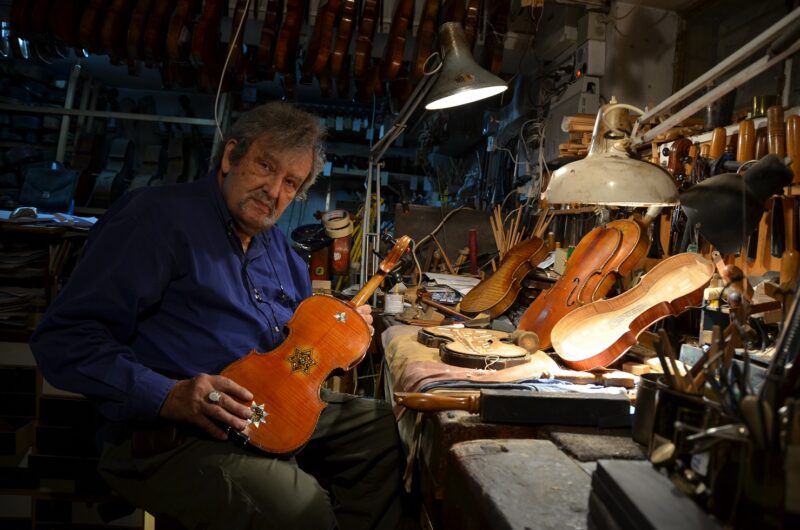
Amnon Weinstein, Violins of Hope
“The entire families of my parents were murdered during the Holocaust. We are speaking about 380 people who perished, So you can understand why I didn’t want to have any connection whatsoever to the Holocaust while I was growing up.
There were a lot of survivors who spent a few days at our family house in Tel Aviv. My room was next to the guest room so I heard them crying during the long nights.
I can still remember the bread that they hid under the pillow.
My dad never spoke about what happened in the Holocaust and when I asked my mother about it, she showed me a book about the Holocaust and pointed to the appalling photos of the dead, and would say, ‘This is our family.’
When I was in sixth grade, I was asked by the principal to play the violin at the school holocaust remembrance ceremony and I refused. When my father heard about my refusal he started crying. I couldn’t see my father crying, so I accepted the request and played at the ceremony. For a very long time after that, I didn’t want to have any connection to the Holocaust and I buried it at the back of my mind.
But,
Everything changed thirty years ago.
A young man brought me a violin for restoration that had belonged to his grandfather who played the violin in Auschwitz. When I opened the violin I found black powder inside. I soon realized that it was the ashes of Holocaust victims from the crematoria of Auschwitz, where his grandfather had last played the violin.
That discovery shocked me and I didn’t want to continue with the restoration, but a few days later, I felt that I just had to do it. I had to bring back to life the Jewish melodies that were silenced by the Nazis.
Back then, I didn’t know it would become my life mission:
To save and restore as many Holocaust Violins as I can.
Since then, I started locating violins that were played by Jews in the camps and ghettos, restoring them, so they could be brought to life again on the concert stage.
I call them Violins of Hope because these instruments represent the voices and spirits of the musicians who played them. When hearing these violins playing in concerts around the world I feel they echo the sounds of the six million Jews who perished in the Holocaust.
These violins helped to save the lives of the musicians who played them in the concentration camps.
They have the ability to save lives today, because, every time someone is hearing them play, they are better informed and educated about the lessons we should all learn from the Holocaust.”
